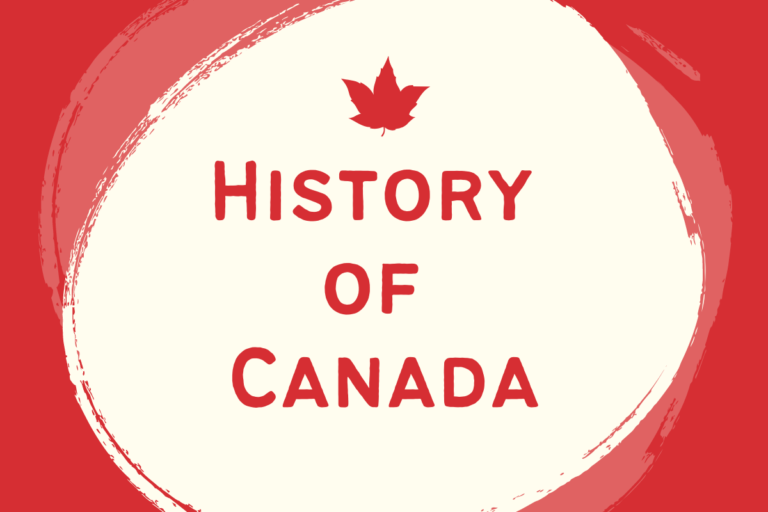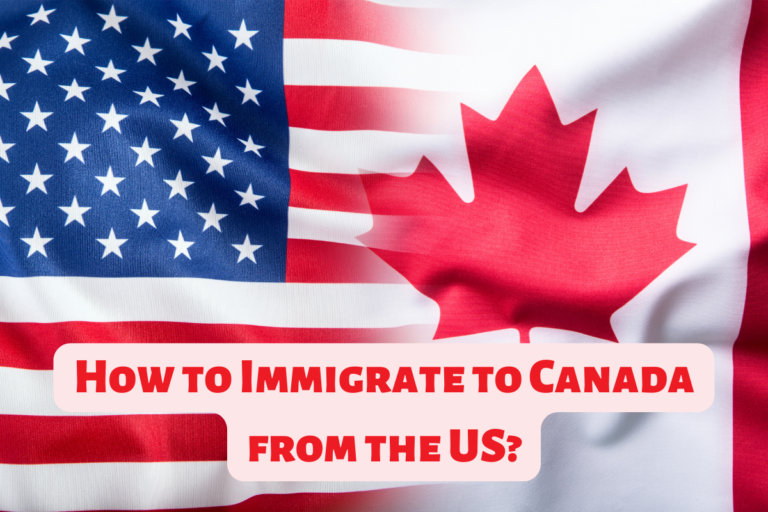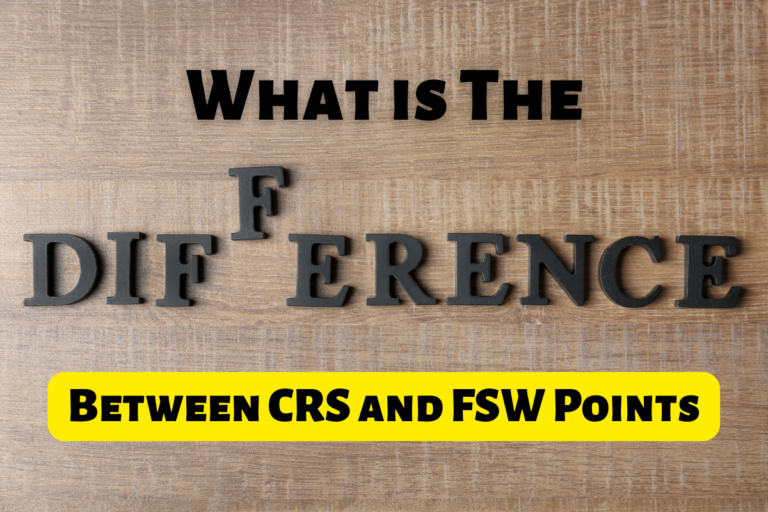How can I get PNP For Express Entry without a job offer in Canada 2023?
What is Provincial Nominee Program (PNPs)?
The Provincial Nominee Program (PNP) is an immigration program through which Canadian provinces and territories can nominate individuals who have the skills and experience needed to contribute to the local economy for permanent residency in Canada.
Each province and territory in Canada has its own PNP, and each has different eligibility requirements and streams to attract candidates who can contribute to their local economies. These streams can be based on the candidate’s skills, work experience, education, language ability, and other factors.
The PNP is designed to address the specific economic and demographic needs of each province and territory and to help fill labor market shortages in various sectors. The program allows provinces and territories to select and nominate candidates who have the skills and experience they need, which can make the immigration process faster and more streamlined for candidates.
Once nominated by a province or territory, candidates can apply to the federal government for permanent residency. The federal government will then review the application and make a final decision on whether to grant permanent residency.
The PNP is one of the many pathways to permanent residency in Canada, and it can be a great option for those who have the skills and experience needed by specific provinces or territories.
Which province gives PNP easily?
It is important to note that the Provincial Nominee Program (PNP) in each province and territory of Canada has its own eligibility requirements and selection criteria, and the ease of obtaining a PNP nomination can vary depending on a candidate’s specific skills, experience, education, and other factors.
While there is no one province that gives PNPs more easily than others, some provinces may have lower eligibility requirements for certain streams or may have a higher demand for workers in certain industries or occupations, which can make it easier for some candidates to obtain a PNP nomination.
For example, the Atlantic provinces (Nova Scotia, New Brunswick, Newfoundland, and Labrador, and Prince Edward Island) have been known to have lower eligibility requirements for some of their PNP streams and may have a higher demand for workers in certain industries such as healthcare, technology, and skilled trades.
However, it’s important to note that the eligibility requirements and selection criteria for PNPs can change over time, so candidates should always check the specific requirements of the program they are interested in before applying. Additionally, it’s always a good idea to research the labor market needs of the province or territory before applying for a PNP, to ensure that there is a demand for your specific skills and experience.
Does PNP require ielts?
Yes, in most cases, the Provincial Nominee Program (PNP) in Canada requires applicants to submit valid language tests results, such as the International English Language Testing System (IELTS) or the Canadian English Language Proficiency Index Program (CELPIP).
The language test is used to assess a candidate’s ability to communicate effectively in English or French, which are the two official languages of Canada. The minimum language proficiency level required varies by province and territory and can depend on the specific PNP stream that the candidate is applying to.
In some cases, PNPs may have a specific language test provider that candidates must use, while others may accept test results from multiple language test providers. Candidates should check the specific requirements of the PNP they are interested in to ensure they are submitting the correct language test results.
It’s important to note that meeting the minimum language proficiency requirements is just one of the eligibility criteria for the PNP. Candidates must also meet other eligibility requirements, such as having the required work experience, education, and other factors.
How much does PNP cost?
The cost of applying for a Provincial Nominee Program (PNP) nomination in Canada can vary depending on the province or territory and the specific PNP stream that the candidate is applying to.
In addition to the fees charged by the provincial or territorial government for processing the application, candidates may also have to pay additional fees for other aspects of the application process, such as medical exams, police certificates, language tests, and other supporting documents.
The cost of the PNP application can also depend on whether the candidate is applying alone or with family members. In most cases, candidates must pay a separate application fee for each family member included in the application.
It’s important to note that the fees for the PNP application are in addition to the fees charged by the federal government for processing the permanent residency application. Candidates who are nominated by a province or territory through the PNP still need to apply to the federal government for permanent residency and will need to pay the appropriate fees for that application as well.
Candidates should check the specific fees for the PNP stream they are interested in, as well as any additional fees for supporting documents, to ensure they clearly understand the total cost of the application process.
Does PNP guarantee PR?
No, receiving a Provincial Nominee Program (PNP) nomination does not guarantee permanent residency in Canada.
While a PNP nomination can be a significant factor in the permanent residency application process, it is still subject to approval by the federal government. After receiving a PNP nomination, candidates must still apply to the federal government for permanent residency, and their application will be subject to additional requirements and assessments.
The federal government will review the application to ensure that the candidate meets all the requirements for permanent residency, including health and security checks, criminal background checks, and meeting the necessary language proficiency requirements. If the federal government approves the application, the candidate and any accompanying family members will be granted permanent residency in Canada.
It’s important to note that the PNP is one of many pathways to permanent residency in Canada, and candidates who are not successful in receiving a PNP nomination may still be eligible to apply for permanent residency through other programs. Candidates should consider all their options and eligibility requirements when deciding which pathway to pursue permanent residency.
What is the difference between PNP and PR?
The Provincial Nominee Program (PNP) and Permanent Residency (PR) are two different concepts related to immigration to Canada.
The PNP is a program offered by provincial and territorial governments in Canada, which allows them to nominate individuals who have the skills and experience needed to fill labor market gaps or to contribute to the economic development of the province or territory. If an individual is nominated by a province or territory through the PNP, they may be eligible to apply for permanent residency in Canada.
Permanent Residency (PR), on the other hand, is a status granted by the Canadian government that allows individuals to live and work in Canada on a permanent basis. PR holders have the right to enter and exit Canada, work and study in Canada, and receive social benefits such as healthcare and education.
In other words, the PNP is a program that can help individuals obtain permanent residency status in Canada, while PR is the status that individuals hold if they are granted permission to live and work in Canada on a permanent basis.
It’s important to note that while the PNP can be a pathway to permanent residency, it is not the only pathway. There are other immigration programs, such as the Federal Skilled Worker Program, the Canadian Experience Class, and the Federal Business Immigration Program, that can also lead to permanent residency in Canada.
Which province is best for PNP?
There is no one “best” province for the Provincial Nominee Program (PNP) in Canada as each province and territory has its own unique immigration streams, eligibility requirements, and labor market needs. The suitability of a particular province or territory for a PNP application will depend on an individual’s specific skills, work experience, education, and other factors.
That being said, some provinces are known to have more active and popular PNPs, with a greater number of immigration streams and categories, such as Ontario, British Columbia, Alberta, and Saskatchewan. These provinces may also have larger populations and economies, which may offer more job opportunities in certain industries.
However, candidates should also consider the specific eligibility requirements of each PNP stream, as some may have more stringent requirements or may be more competitive than others. Additionally, candidates should research the labor market needs of each province and territory to determine which industries and occupations are in high demand.
Ultimately, the best province for a PNP application will depend on a range of factors, including the candidate’s individual circumstances, qualifications, and preferences. Candidates are encouraged to research and consider multiple PNPs and eligibility requirements before making a decision on which stream to apply to.
How to apply for Canada PNP without a job offer
The Provincial Nominee Program (PNP) is a pathway for skilled workers and entrepreneurs to gain permanent residency in Canada. While some PNPs require a job offer from a Canadian employer, there are also some PNPs that do not require a job offer.
Here are the general steps to apply for a PNP without a job offer:
- Determine which province you want to apply to: Each province and territory in Canada has its own PNP, and each has different requirements and eligibility criteria. Research each program to determine which one is best for you.
- Check your eligibility: Before applying, you should make sure that you meet the eligibility criteria of the PNP program you’re interested in. This may include factors such as age, education, language proficiency, work experience, and financial resources.
- Submit an Expression of Interest (EOI): Some provinces require applicants to submit an EOI to indicate their interest in applying for the PNP. The EOI usually includes basic information about your education, work experience, and language proficiency.
- Wait for an invitation to apply: Once you submit an EOI, you may be invited to apply for the PNP. Invitations are usually based on factors such as the labor market needs of the province, the demand for your particular skills, and your overall profile.
- Submit a complete application: If you are invited to apply, you will need to submit a complete application with all the required documents, including proof of education, work experience, language proficiency, and other supporting documents.
- Wait for a decision: The processing time for PNP applications can vary depending on the province and the complexity of your application. Once your application is processed, you will be notified of the decision.
It’s important to note that each PNP program has its own requirements and application process, so you should always check the specific requirements of the program you’re interested in before applying.
3 Canada PNPs For Express Entry Without A Job Offer
While most Provincial Nominee Programs (PNPs) in Canada require a job offer from a Canadian employer, there are a few PNPs that do not require a job offer and are aligned with the federal Express Entry system. Here are three PNPs that fall under this category:
- Ontario Immigrant Nominee Program (OINP) – Human Capital Priorities Stream:
The Ontario Immigrant Nominee Program (OINP) Human Capital Priorities (HCP) Stream is a popular immigration stream that allows Ontario to nominate highly skilled foreign workers with work experience in specific occupations for permanent residency in Canada.
To be eligible for the OINP HCP Stream, candidates must have a valid profile in the federal government’s Express Entry system and meet the eligibility requirements for one of the three Express Entry programs: Federal Skilled Worker Program (FSWP), Canadian Experience Class (CEC), or Federal Skilled Trades Program (FSTP). Candidates must also meet the specific eligibility requirements of the OINP HCP Stream, including:
- A minimum language proficiency of Canadian Language Benchmark (CLB) level 7 or higher in English or French
- A minimum level of work experience in a National Occupational Classification (NOC) skill level 0, A or B occupation
- A minimum level of education, depending on the occupation
- A valid job offer (in some cases)
The OINP HCP Stream operates on an invitation-only basis, with candidates being invited to apply based on their Express Entry profile and their potential to meet the labor market needs and economic priorities of Ontario.
Candidates who are nominated by Ontario through the OINP HCP Stream will receive an additional 600 points toward their Comprehensive Ranking System (CRS) score, which significantly increases their chances of receiving an Invitation to Apply (ITA) for permanent residency in a subsequent Express Entry draw.
- Nova Scotia Nominee Program (NSNP) – Labour Market Priorities Stream:
The Nova Scotia Nominee Program (NSNP) Labour Market Priorities (LMP) Stream is an immigration stream that allows Nova Scotia to nominate highly skilled foreign workers for permanent residency in Canada, based on the province’s specific labor market needs.
The NSNP LMP Stream operates on an invitation-only basis, with candidates being invited to apply based on their qualifications and work experience in specifically targeted occupations that are in high demand in Nova Scotia. The targeted occupations may change based on the current labor market needs in the province.
To be eligible for the NSNP LMP Stream, candidates must have a valid profile in the federal government’s Express Entry system and meet the eligibility requirements for one of the three Express Entry programs: Federal Skilled Worker Program (FSWP), Canadian Experience Class (CEC), or Federal Skilled Trades Program (FSTP). Candidates must also meet the specific eligibility requirements of the NSNP LMP Stream, which may include:
- A minimum level of work experience in a targeted occupation in Nova Scotia
- A minimum level of education, depending on the occupation
- A minimum language proficiency in English or French
The NSNP LMP Stream offers a quicker pathway to permanent residency for eligible candidates, as it operates outside of the regular Express Entry draw process. Candidates who are invited to apply for the NSNP LMP Stream and are successfully nominated by Nova Scotia will receive an additional 600 points toward their Comprehensive Ranking System (CRS) score, which significantly increases their chances of receiving an Invitation to Apply (ITA) for permanent residency in a subsequent Express Entry draw.
- Saskatchewan Immigrant Nominee Program (SINP) – International Skilled Worker – Express Entry Sub-Category:
The Saskatchewan Immigrant Nominee Program (SINP) International Skilled Worker – Express Entry Sub-Category is an immigration stream that allows Saskatchewan to nominate highly skilled foreign workers with work experience in specific occupations for permanent residency in Canada.
To be eligible for the SINP International Skilled Worker – Express Entry Sub-Category, candidates must have a valid profile in the federal government’s Express Entry system and meet the eligibility requirements for one of the three Express Entry programs: Federal Skilled Worker Program (FSWP), Canadian Experience Class (CEC), or Federal Skilled Trades Program (FSTP). Candidates must also meet the specific eligibility requirements of the SINP International Skilled Worker – Express Entry Sub-Category, including:
- A minimum language proficiency of Canadian Language Benchmark (CLB) level 7 or higher in English or French
- A minimum level of work experience in a National Occupational Classification (NOC) skill level 0, A or B occupation
- A minimum level of education, depending on the occupation
- Proof of sufficient settlement funds
- A valid Saskatchewan Express Entry profile Number and Job Seeker Validation Code
The SINP International Skilled Worker – Express Entry Sub-Category operates on an invitation-only basis, with candidates being invited to apply based on their Express Entry profile and their potential to meet the labor market needs and economic priorities of Saskatchewan.
Candidates who are nominated by Saskatchewan through the SINP International Skilled Worker – Express Entry Sub-Category will receive an additional 600 points toward their Comprehensive Ranking System (CRS) score, which significantly increases their chances of receiving an Invitation to Apply (ITA) for permanent residency in a subsequent Express Entry draw.
It’s important to note that the eligibility criteria for each PNP stream can change over time.




